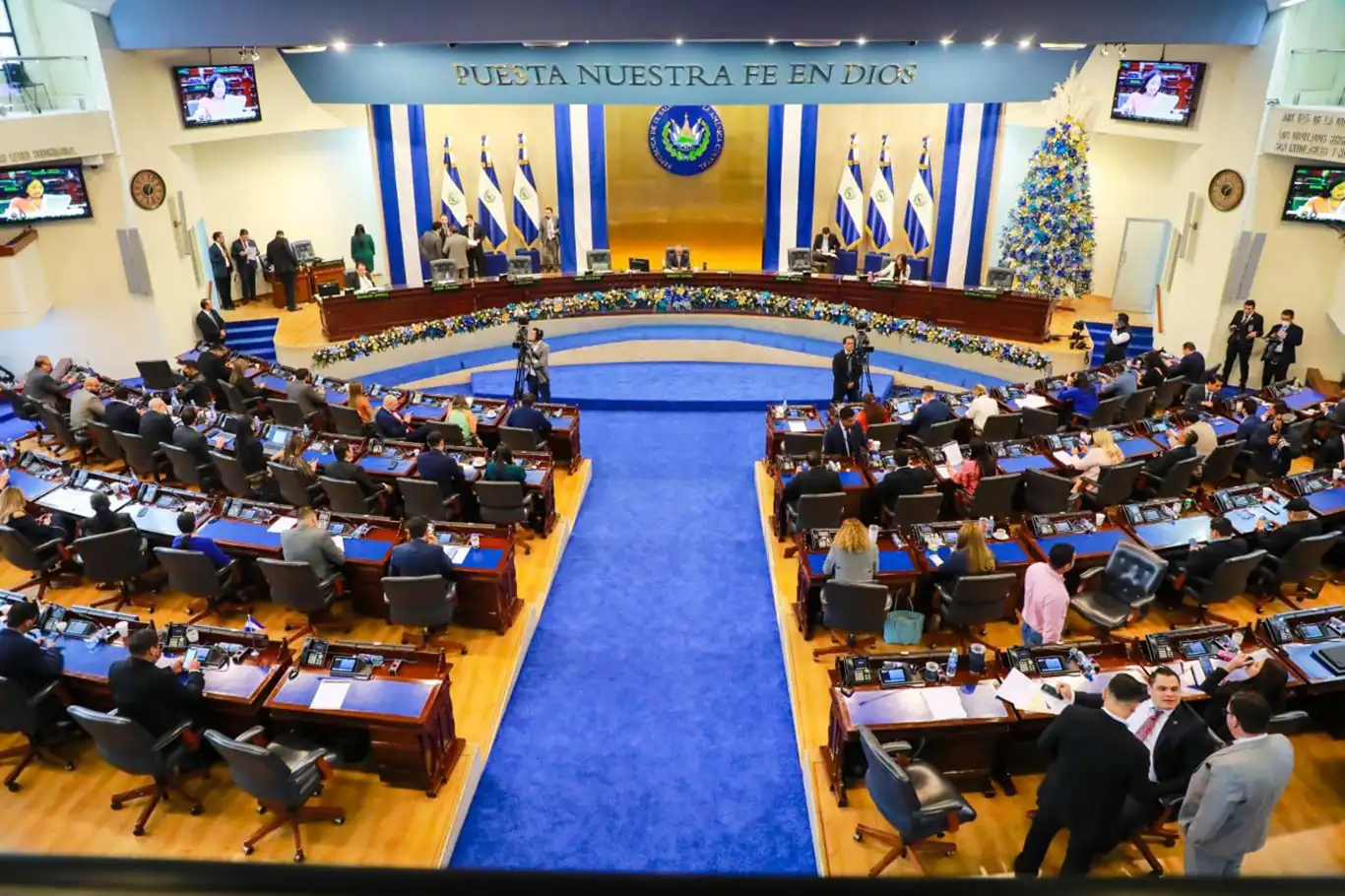El Salvador approves indefinite reelection for President Bukele


El Salvador’s Legislative Assembly, dominated by President Nayib Bukele’s New Ideas party, has passed a sweeping package of constitutional reforms allowing indefinite presidential reelection and extending the presidential term to six years.
The vote, held on Thursday, passed with 57 votes in favor and three against, with minimal debate. Opposition lawmakers, civil society groups, and international observers have expressed alarm, warning that the move accelerates El Salvador’s democratic decline and risks entrenching an increasingly authoritarian system.
The reforms, introduced by New Ideas lawmaker Ana Figueroa, amend five key articles of the constitution. Alongside removing limits on presidential terms, the legislation eliminates the second-round runoff in presidential elections and adjusts the presidential calendar so that Bukele’s current term—originally set to end in 2029—will conclude in 2027.
This shift aligns presidential and legislative elections, potentially enabling Bukele to seek another, now longer, term two years earlier than expected.
Supporters argue that the reforms bring the presidency into alignment with other elected offices. “All other public positions have the possibility of reelection through popular vote. The only exception until now has been the presidency,” Figueroa told the Assembly.
Assembly Vice President Suecy Callejas framed the changes as democratic. “Power has returned to the only place it truly belongs … to the Salvadoran people,” she declared.
Critics, however, see the changes as a dangerous consolidation of power. Marcela Villatoro of the Arena party declared, “Democracy in El Salvador has died! Indefinite reelection breeds corruption, clientelism, and the concentration of power in one individual.”
The reforms build on a 2021 Supreme Court ruling—delivered after Bukele’s allies replaced top judges—that overturned the long-standing constitutional ban on consecutive reelection. That decision cleared the way for Bukele’s landslide victory in the 2024 elections and has since emboldened his party to pursue more sweeping structural changes.
Since coming to power in 2019, Bukele has tightened his grip on all branches of government. His party’s legislative supermajority has removed top judges, dismissed the attorney general, reduced the number of Assembly seats, and restructured the country’s municipalities—moves critics say were designed to weaken political competition.
Despite concerns over democratic backsliding, Bukele remains overwhelmingly popular. His aggressive anti-gang campaign, launched under a nationwide state of emergency, has drastically reduced murder rates in one of the world’s most violent countries.
However, rights groups warn that these security gains come at a steep cost. Tens of thousands of people have been arrested without due process, and reports of arbitrary detention, overcrowded prisons, and abusive conditions are widespread.
Reactions abroad have been mixed. Under President Biden, the US voiced concern over El Salvador’s weakening democratic institutions. But with Donald Trump back in the White House, Washington’s rhetoric has softened. Bukele has become a key ally for Trump on security and migration, including accepting deportees from the US into El Salvador’s new mega-prison—moves both leaders have touted as part of a regional law-and-order strategy.
Observers warn that the combination of overwhelming domestic support and muted international pressure may embolden Bukele to consolidate his position for years to come.
Political analysts have compared Bukele’s trajectory to that of Nicaragua’s Daniel Ortega and Venezuela’s Nicolás Maduro—leaders who began with democratic mandates but gradually rewrote constitutional rules to extend their power.
“Bukele has the popular mandate, the legislative control, and now the legal framework to remain in power indefinitely,” said Eduardo Escobar, a political analyst in San Salvador. “The question is whether Salvadoran democracy can survive such concentration of authority in the presidency.”
With the constitutional barriers to reelection dismantled, Bukele’s political future appears secure. Supporters hail him as the leader who restored security to the country; opponents fear he may transform El Salvador’s democratic institutions into a façade for unchecked executive rule. (ILKHA)
LEGAL WARNING: All rights of the published news, photos and videos are reserved by İlke Haber Ajansı Basın Yayın San. Trade A.Ş. Under no circumstances can all or part of the news, photos and videos be used without a written contract or subscription.
Four Democratic members of the U.S. House of Representatives have called on President Donald Trump to intervene urgently to end the war in the Gaza Strip, warning of a deepening humanitarian catastrophe and escalating regional instability.
More than a million people flooded the streets of Yemen’s capital, Sanaa, in a massive rally expressing unwavering solidarity with Palestine.
Germany will deliver two additional Patriot air-defense systems to Ukraine in the coming days as part of a coordinated agreement with the United States, Bloomberg reported on Friday.